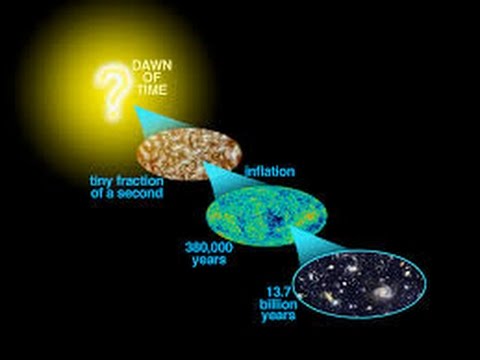The question of what happened before the Big Bang has been one of the most puzzling and intriguing questions in cosmology for decades. For a long time, it was believed that the universe was born in a single moment of unimaginable energy, exploding outwards in a burst of light and matter that we now call the Big Bang. But recent discoveries and advances in physics have challenged this idea, opening up a fascinating and mind-bending realm of possibilities.
In the BBC Horizon documentary “What Happened Before The Big Bang?”, physicist Neil Turok, Director of Perimeter Institute for Theoretical Physics in Canada, proposes a radical new answer to this age-old question. Instead of the universe springing into existence from a mysterious initial singularity, Turok suggests that the Big Bang was actually a collision between two parallel universes, similar to our own, floating in a higher-dimensional space that we’re not aware of. This would mean that the universe we live in is just one in a potentially endless series of cosmic cycles, with each cycle beginning and ending with a bang.
This idea is known as the “cyclic model” of the universe, and it is not without its controversies. Some physicists argue that the idea of a universe without a beginning is problematic and that it violates our understanding of causality and the laws of thermodynamics. Others point out that the cyclic model requires the existence of a higher-dimensional space, something that is currently beyond the reach of our technology and understanding.
But Turok is not alone in his thinking. Sir Roger Penrose, a renowned physicist and mathematician, has also changed his mind about the Big Bang. In his latest work, Penrose suggests that the universe is eternal and cyclical, with each cycle starting with a Big Bang and ending in a “Big Chill”, where all matter is transformed into energy. This energy then creates a new universe, starting the cycle all over again. Penrose’s theory is based on the idea of “conformal cyclic cosmology”, which proposes that the universe is infinite in both space and time and that there is no beginning or end.
The idea of an eternal, cyclical universe challenges many of our assumptions about time, causality, and the nature of existence itself. But it is also an idea that is gaining increasing support from some of the brightest minds in physics today. And while we may never know for sure what happened before the Big Bang, it is exciting to think that we may be on the cusp of a major paradigm shift in our understanding of the universe.
In the Horizon documentary, Turok and other physicists explore the implications of the cyclic model and other theories of the universe’s origin. They discuss the possibility of other universes beyond our own, the idea of parallel dimensions, and the nature of time itself. It’s a fascinating journey into the unknown, a dizzying world of cosmic bounces, rips, and multiple universes.
“What Happened Before The Big Bang?” is a must-watch for anyone interested in the mysteries of the universe and the cutting-edge of physics research. It challenges our assumptions about the universe and forces us to confront the idea that our existence may be just one small part of an infinitely larger, more complex reality.

